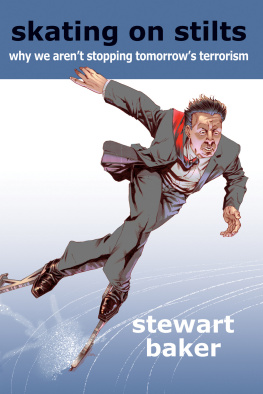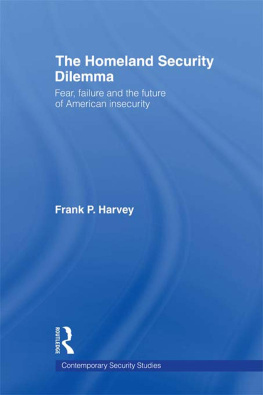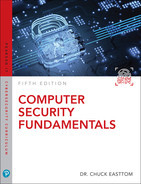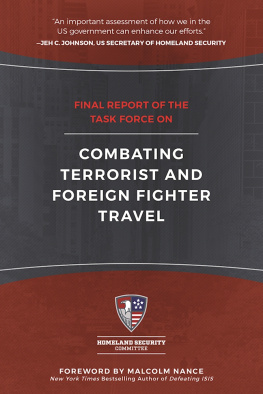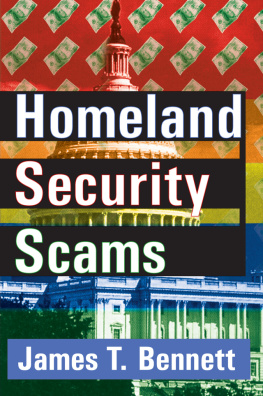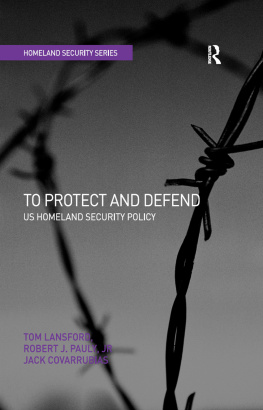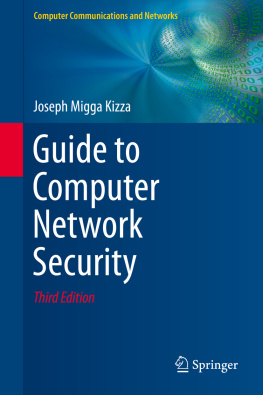The Hoover Institution on War, Revolution and Peace, founded at Stanford University in 1919 by Herbert Hoover, who went on to become the thirty-first president of the United States, is an interdisciplinary research center for advanced study on domestic and international affairs. The views expressed in its publications are entirely those of the authors and do not necessarily reflect the views of the staff, officers, or Board of Overseers of the Hoover Institution.
www.hoover.org
Hoover Institution Press Publication No. 591
Hoover Institution at Leland Stanford Junior University,
Stanford, California, 94305-6010
Copyright 2010 by the Board of Trustees of the
Leland Stanford Junior University
All rights reserved. Subject to the exception immediately following, this book may not be reproduced, in whole or in part, including illustrations, in any form (beyond that copying permitted by Sections 107 and 108 of the U.S. Copyright Law and except by reviewers for the public press), without written permission from the publishers and copyright holders.
The publisher has made an online version of this work available under a Creative Commons Attribution-NoDerivs license 3.0. To view a copy of this license, visit http://creativecommons.org/licenses/by-nd/3.0/legalcode or send a letter to Creative Commons, 171 Second St., Suite 300, San Francisco, CA 94105 USA. A copy of the license is included on page 354.
First printing 2010
16 15 14 13 12 11 10 9 8 7 6 5 4 3 2 1
Manufactured in the United States of America
The paper used in this publication meets the minimum Requirements of the American National Standard for Information SciencesPermanence of Paper for Printed Library Materials, ANSI/NISO Z39.48-1992.

Cataloging-in-Publication Data is available from the Library of Congress.
ISBN-13: 978-0-8179-1154-6 (cloth)
ISBN-13: 978-0-8179-1156-0 (e-book)
To Frank M. Coffin (1919-2009)
Frank M. Coffin served in Congress, in the executive branch, and for four decades on the U.S. Court of Appeals for the First Circuit. A year as his law clerk showed me that public service, affection, high standards, and good humor could be the core of a great career in writing, law, and government.
Foreword
I n the years following the September 11 attacks, America's struggle against Islamic extremism and transnational terror has given rise to many novel and difficult legal questions. To address some of those questions, the Hoover Institution launched the Koret-Taube Task Force on National Security and Law, which was made possible by the generous support of the Koret Foundation, the Taube Family Foundation, and the Jean Perkins Foundation. The task force, which is guided by Hoover's staunch commitment to the protection of rights under law and an acute appreciation that liberty depends on security, brings together an outstanding array of leading thinkers. Hoover convenes the group regularly, providing a forum in which they can think independently and benefit from the criticism of, and collaboration with, their distinguished colleagues.
On issues ranging from the detention, interrogation, and prosecution of enemy combatants at home to the use of unmanned aerial vehicles to conduct targeted killings in Afghanistan and Pakistan, task force members have produced a steady stream of influential opeds, essays, law review articles, and books aimed at the broad public; provided important congressional testimony; and offered expertise to Capitol Hill lawmakers. In addition, the task force has reached out to scholars and former government officials wrestling with national security questions, both to benefit from their knowledge and experience and to give them access to task force deliberations.
We were especially delighted when Stewart Baker, a distinguished lawyer and public servant, agreed to join task force members at Hoover to present the arguments that culminated in Skating on Stilts. Baker's book draws on his extensive government experience and, in particular his recent service as the first assistant secretary for policy at the Department of Homeland Security. It explores a variety of grave threats presented by today's transnational terrorists and examines the steps we must take, consistent with constitutional principles, to bolster our defenses. In addition, it is concise, lucid, and compelling. We are therefore proud to include Skating on Stilts among the growing body of task force contributions to the crucial debate over national security law.
Peter Berkowitz
Tad and Dianne Taube Senior Fellow;
Chair, Koret-Taube Task Force on National Security and Law
Acknowledgments
I could not have written this book without the help of many others. John Hamre and the Center for Strategic and International Studies provided crucial support (including the thing I needed mosta quiet office with blank walls and no windows), enabling me to take the book past the point of no return in the first half of 2009. My partners at Steptoe & Johnson have been endlessly patient with me in the months since then. My son, Gordon, sacrificed a couple of great hiking trips with me so that I could finish this book. My former colleagues at the Department of Homeland Security encouraged and corrected me in equal measure. Both the Department of Homeland Security and the National Security Agency conducted a professional and prompt review of a draft of the book for classified material. And I will always be grateful to Secretary Michael Chertoff and President George W. Bush who made possible the achievementsand forgave the failuresdescribed in this book.
I owe special thanks to Paul Rosenzweig, who served with distinction as my deputy and alter ego at the department and whose contributions to this book and the thinking behind it were profound. He did a first draft of more than one chapter, and he read and edited drafts of the rest. Most of all, in the drafting as in government, he gave me wise counsel and loyal assistance beyond any reasonable expectation.
Stewart Baker
Great Falls, Virginia
PART ONE THE ROAD TO 9/11
Introduction
The Gift
A cold drizzle is falling on the Pentagon parking lot. The memorial for those who died here on 9/11 was dedicated in 2008just a year agobut it's almost deserted. In nearly four years at the Department of Homeland Security (DHS), I never managed to visit any of the 9/11 memorials. Now that I'm out of office, along with the rest of the Bush Administration, I have time to pay a quiet visit.
I don't like the place. Flat and unadorned, it feels like an extension of the vast Pentagon parking lot. The trees are scrawny, and the grounds are a utilitarian expanse of gravel and rain-slick paving stones. Beyond the sparse vegetation and a concrete wall, traffic hisses and thrums on a highway.
I think I know what the designers had in mind. They wanted everything understated and austere. There's a bench and a lighted pool of water for each victim who died here. Each bench bears a victim's name. The benches and the paths trace the course that Flight 77 must have takensmack into the massive west wall of the Pentagon that looms nearby, gray in the rain.
The site is all about good taste and minimalism. Security is tight. The grounds look as though they're swept clean each night to remove any trace of the day's visitors, their litter, their mess, their grief.
But I'm not in the mood for good taste. The place feels cold and runic. Some benches arc toward the building; others arc away. Some of the pools have names in them; most don't. The benches are arranged by year, from 1998 to 1930.

